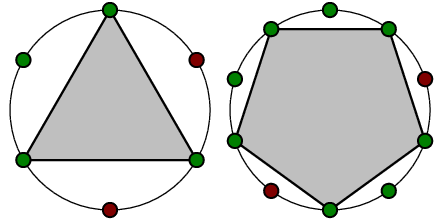Algorithm
Code Examples
#1 Code Example with C++ Programming
Code -
C++ Programming
#include <cstdio>
#include <vector>
int main(){
long n; scanf("%ld", &n);
std::vector<int> a(n); for(long p = 0; p < n; p++){scanf("%d", &a[p]);}
std::vector<long> div;
for(long p = 1; p * p <= n; p++){if(n % p == 0){div.push_back(p); div.push_back(n / p);}}
bool possible(false);
for(long p = 0; p < div.size(); p++){
if(possible){break;}
long step = div[p];
long nodes = n / step;
if(nodes < 3){continue;}
for(long offset = 0; offset < step; offset++){
bool test(true);
for(long u = 0; u < nodes; u++){if(!a[(step * u + offset) % n]){test = false; break;}}
if(test){possible = true; break;}
}
}
puts(possible ? "YES" : "NO");
return 0;
}Input
3
1 1 1
1 1 1
Output
YES
Demonstration
Codeforces C. Round Table Knights-Solution in C, C++, Java, Python

